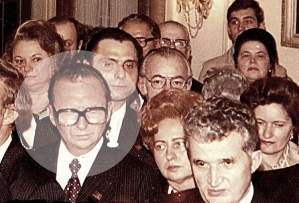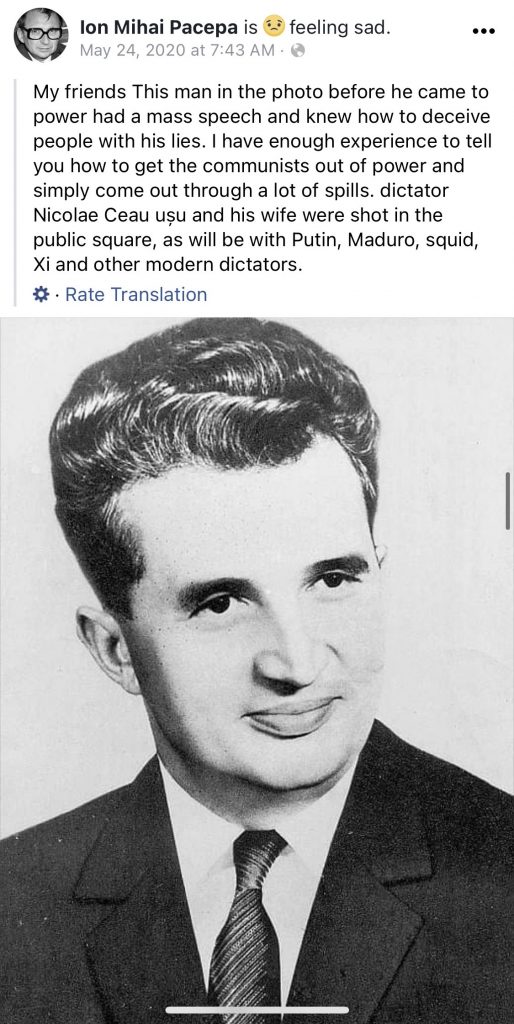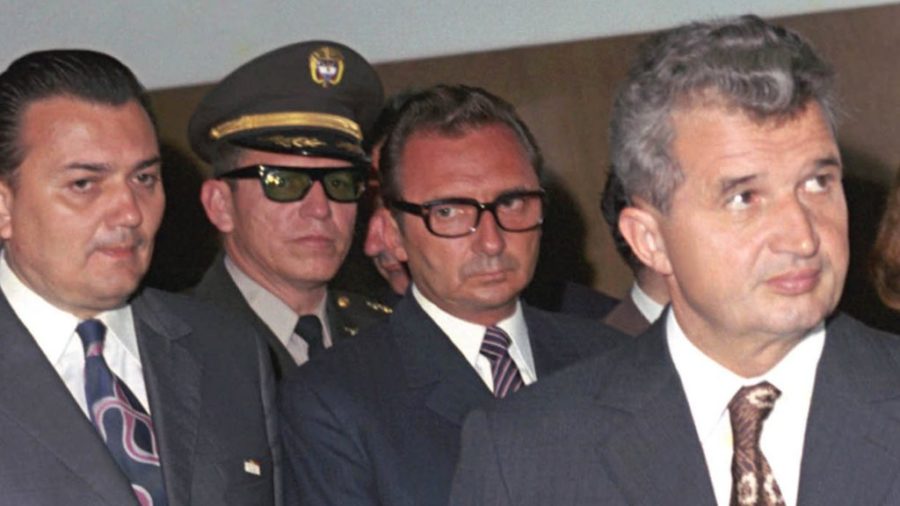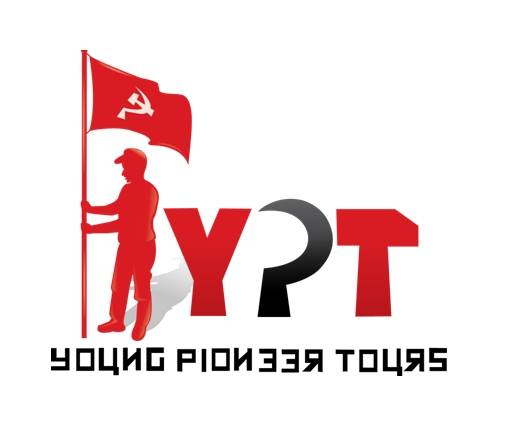Lt. General Ion Pacepa passed away on February 14, 2021 at age 92. Pacepa is best known as the author of Red Horizons, a damning exposé on Romanian President and communist dictator Nicolae Ceauşescu, published following Pacepa’s defection to the West in 1978.
Of Transylvanian descent, Pacepa was born in 1928 and raised in Bucharest. While attending university for chemical engineering after WWII, he was recruited by the Departamentul Securității Statului (Department of Public Security), often abbreviated as just “The Securitate.” The Securitate was developed with the help of the Soviet NKVD and would eventually grow to have the largest amount of agents per capita out of any other government in the Eastern Bloc.
Pacepa first worked for the Directorate of Counter-sabotage, and by the mid-50s was reassigned to the Directorate of Foreign Intelligence. He quickly distinguished himself as a smooth and reliable operator for the communist government, then headed by First Secretary and Prime Minister Gheorghiu-Dej. After a stint as head of the Romanian intelligence post in West Germany, he was transferred to the The Securitate’s industrial espionage department, S&T of Directorate I.
Following Nicolae Ceauşescu’s rise to power after Gheorghiu-Dej’s death in 1965, Pacepa became one of Ceauşescu’s most reliable agents. Following Ceauşescu’s visit to North Korea in 1971, he began the process of reeling back various attempts at reform and liberalization in Romania, while simultaneously – and meticulously – overseeing a massive intelligence operation aimed at the West called “Horizon,” many of its initiatives overseen by Pacepa.
The aim of Horizon was to portray Romania as a neutral and liberal socialist republic, independent from the USSR, and with whom the West could do business. To accomplish this, Horizon employed scores of recruited foreign agents working on behalf of Ceauşescu to influence foreign governments, and a variety of other tactics such as forged “intelligence reports” created to look like they were written by foreign intelligence agents praising Ceauşescu for his liberal policies and favorable stance on the West.
For most of the 1970s, Horizon was wildly successful in getting the West to turn a blind eye to Romania’s human rights record and the harsh reality of daily life given in accounts from its defectors as well as letters smuggled from inside, which, as Pacepa detailed in his book, Ceauşescu sought to stamp out through creating a database with a record of every Romanian citizen’s handwriting. Nevertheless, Horizon influenced Western powers like the United States to recognize Ceauşescu, earning him access to Western technology, multiple summits with US Presidents Nixon, Ford and Carter, a visit with Queen at Buckingham Palace, as well as most-favored-nation trading status with the US. Of course, the grim reality was that Ceauşescu and his loyalists enjoyed the spoils of this operation while most of the Romanian population toiled under third world living conditions with their thoughts and actions monitored by a ubiquitous undercover police force.
Finally, in 1978, Lt. General Pacepa suddenly defected to the West while on an assignment in West Germany. He later explained the circumstances which led to his defection in a 1980 Radio Free Europe broadcast directed at his daughter, Dana, whom he had left behind in Romania: “In 1978 I got the order to organize the killing of Noël Bernard, the director of Radio Free Europe’s Romanian program who had infuriated Ceausescu with his commentaries. It was late July when I got this order, and when I ultimately had to decide between being a good father and being a political criminal. Knowing you, Dana, I was firmly convinced that you would prefer no father to one who was an assassin.”

Pacepa’s defection was a considerable blow to Ceauşescu both personally and publicly. The damning details of his unscrupulous intelligence activities conducted through Horizon, as well as the portrayal of Ceauşescu and his wife Elena as two despots who viewed Romania, and its citizens as their personal property, would be a blow to Ceauşescu’s prestige from which his government would never fully recover. Pacepa’s defection and his book Red Horizons were major catalysts for Nicolae and Elena Ceauşescu’s eventual overthrow and execution in 1989. By then, Ceauşescu had spent considerable manpower, money and resources try to locate Pacepa and exact revenge, to no avail. 10 years after Ceauşescu’s death, the execution order on Pacepa was rescinded and his rank of Lieutenant General was restored.
From his defection up to shortly before his passing, Pacepa remained an outspoken critic of communism and one-party governments. As recently as May, 2020, he wrote on his facebook page, “I don’t trust collectivist people and let alone people who love socialist policies.” A few days later, he added this statement with an accompanying photo of his former boss:

Read Red Horizons, Lt. General Ion Pacepa’s incredible account of his time inside Ceauşescu’s inner circle, here.




